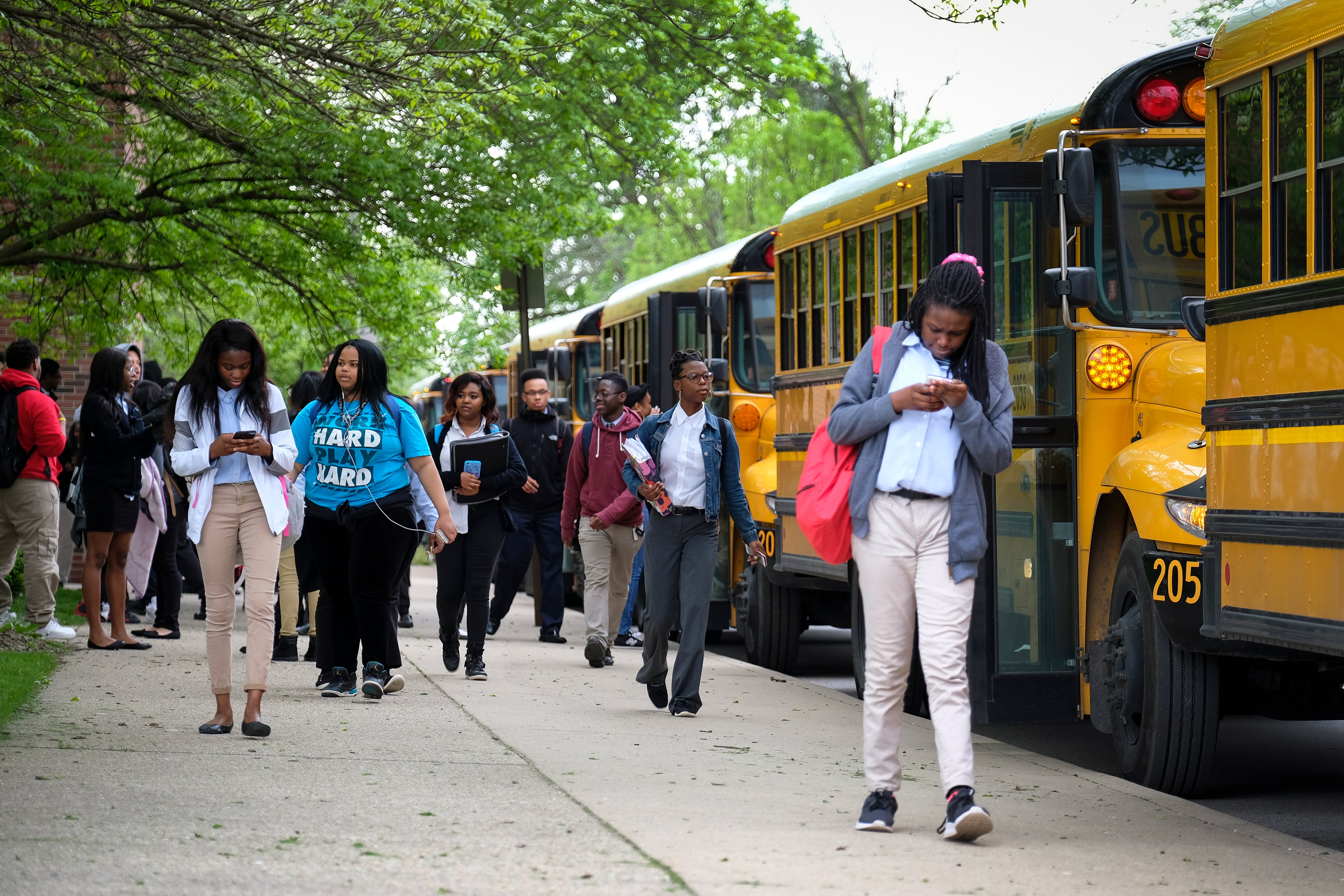Sign up for Chalkbeat Indiana’s free daily newsletter to keep up with Indianapolis Public Schools, Marion County’s township districts, and statewide education news.
Private school enrollment in Indiana continued to grow steadily this school year, though the number of students using vouchers grew at a faster rate, new data from the Indiana Department of Education shows.
The number of students in public schools, meanwhile, has remained virtually unchanged since 2020-21, declining by just a fraction of a percentage point each year. Over 1 million Hoosier students attend public schools.
But private school enrollment — 92,000 students this school year — has set another record following Indiana’s expansion last year of Choice Scholarships that made the voucher program available to nearly every Indiana family. The revised Choice Scholarships program raised the income threshold for eligibility and eliminated other requirements. Supporters say the change extends more opportunities to more children and families. Critics say Indiana and other states are increasingly subsidizing relatively wealthy families who can afford private schools without vouchers.
Enrollment at private schools increased by around 4,600 students this year. These schools can be secular or religious, independent or affiliated with a diocese. Enrollment in private schools has grown by around 5% each year over the last three years.
Meanwhile, the state education department approved over 69,000 Choice Scholarship applications during the first round of the program this year. That’s an increase of about 16,000, or 30%, from the over 53,000 applications it approved for the previous year.
This disparity could indicate that many of the families using the vouchers aren’t new to private schools. Critics have said expanding the income requirements for the program would not primarily benefit children living in poverty and attending failing public schools — the stated goal of many voucher programs.
“It validates what we were concerned about once they lifted the income requirements, that this is an entitlement program for the wealthy,” said Cathy Fuentes-Rohwer of the Indiana Coalition for Public Education, which advocated against the voucher expansion during the 2023 legislative session.
Directing state funding to private schools also raises issues of accountability for public dollars, and leaves less for public schools that legislators are obligated to fund, Fuentes-Rohwer added.
But school choice supporters say Indiana should be commended for offering families more flexibility. If, for example, a family received a voucher for a student who was already enrolled in private school, they may now be able to afford to send a sibling to private school as well, said Paul DiPerna, vice president of research and innovation at EdChoice, an Indianapolis-based nonprofit that advocates for school choice.
“It’s leveling the playing field and the access and opportunity for families, not just from family to family but within families,” DiPerna said.
There’s likely more than one reason private schooling is growing in Indiana, DiPerna said, including families’ preferences for personalized attention and learning. The effects of the state’s choice-friendly laws need closer study, he added.
This year’s data on who uses vouchers and which schools they’re used at will be available in the spring, according to the state education department.
Aleksandra Appleton covers Indiana education policy and writes about K-12 schools across the state. Contact her at aappleton@chalkbeat.org.






